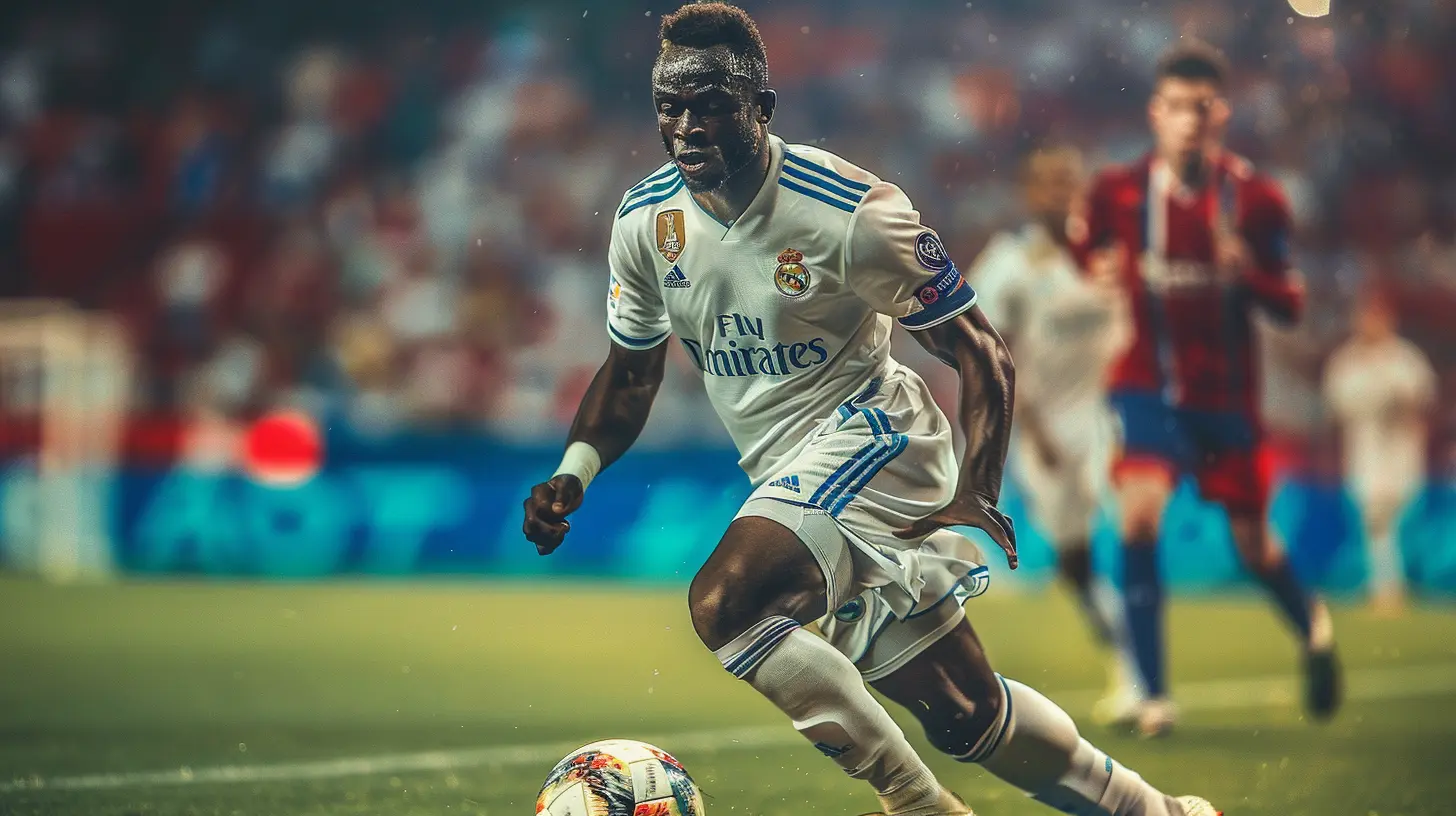The Role of the Playmaker in Dictating the Tempo
4 September 2025
Ask any football fan what makes a great team tick, and they’ll probably throw out names like Messi, Modrić, De Bruyne, or Iniesta. What do all these legends have in common? They’re playmakers — the beating heart of their teams. But here’s a deeper question to ponder: what exactly does a playmaker do beyond just flashy passes or stunning through balls?
Let’s break it down, because the role of the playmaker goes far beyond assists and highlight reels. They’re not just creating chances — they’re setting the rhythm, dictating the tempo, and controlling how the game flows. Imagine them as the DJs of the football pitch, spinning the tracks and deciding whether it's time to turn up the tempo or take it slow.
In this article, we’re diving headfirst into the fascinating, underrated, and absolutely pivotal role of the playmaker in dictating tempo — something that separates good teams from unstoppable ones.
What Is a Playmaker, Really?
Alright, let’s get the basics out of the way. A playmaker is usually a midfielder, but not always. This player is the creative brain of the team. While strikers finish chances and defenders block them, the playmaker does a bit of everything — but with a twist of vision and flair.Some are deep-lying, like Andrea Pirlo, picking passes from just above the defensive line with elegance. Others operate further up the pitch, like Bruno Fernandes, threading passes in and around the final third.
But no matter where they play, one thing remains the same — they pull the strings.
Tempo: The Hidden Pulse of Every Match
Let’s talk tempo. You might hear commentators mention “controlling the pace of the game.” That’s tempo. It’s the speed and rhythm at which the match is played. Fast tempo? Think counterattacks, quick transitions, relentless pressing. Slow tempo? Think possession football, patient build-up, and calculated moves.Now here’s the kicker — playmakers thrive in reading, adjusting, and exploiting tempo.
When the game is chaotic, they’re the calm. When the team needs a spark, they accelerate it. It’s like a conductor leading an orchestra — they decide when it’s a symphony and when it’s a rock concert.
Reading the Game Like a Book
Great playmakers don't just play the game. They read it. They read body language, space, time, and momentum. This is what separates them from the rest.You ever wonder how a player like Luka Modrić seems to already know where everyone will be? It’s not magic (although it feels like it) — it's awareness. They constantly scan the field, take mental snapshots, and anticipate the future like a chess grandmaster thinking five moves ahead.
This situational awareness allows them to slow things down when the team is stretched or speed things up when the opposition is out of position.
Control Without Chaos
Let me paint a picture for you.Imagine a team trying to break out from the back under pressure. The ball goes to the playmaker. It’s chaos — players are running, fans are yelling, the press is intense. But the playmaker? Calm as ever. One touch, a look up, a composed pass — and just like that, the entire game breathes again.
That’s the power of composure. That’s the power of control. Playmakers bring order to the madness.
They’re the thermostat of the team. Not just adjusting to the temperature — they set it.
The Art of the Pause
Want to hear something counterintuitive? Sometimes the best thing a playmaker can do is… nothing.Well, not literally nothing. But we’re talking about slowing down, keeping the ball, making a sideways pass, or holding possession for just a moment longer. Why?
Because it resets everything. It lets teammates reposition. It frustrates opponents. It draws them in and opens up space elsewhere.
It’s not flashy. It’s not going viral on social media. But it’s genius. The pause is part of the rhythm. It’s like the silence between beats in a song — essential, beautiful, and unnoticed unless you’re really listening.
Dictating the Tempo in Different Scenarios
Let’s dig into some actual game situations to really see how tempo control plays out.1. When You’re Winning
Up a goal with 20 minutes to go? The playmaker becomes the king of calm. No rushed passes, no risky plays. The job is to control possession, make the opponents chase shadows, and kill the clock without losing the threat of a counter.2. When You’re Losing
Down a goal with time running out? The playmaker flips the switch. Suddenly, everything’s one-touch, incisive, aggressive. They’re pushing forward, playing between the lines, and raising the heartbeat of the entire team. They’re throwing gasoline on the fire.3. Against a Low Block
The opposition’s parked the bus? This is the playmaker’s chess game. It’s about unlocking doors with creativity — not just repeating passes, but creating angles, switching play, and tempting defenders to step out of line.4. Under Intense Pressing
Some teams press high and hard, trying to force mistakes. A top playmaker, though? They manipulate that pressure. They draw players in, find escapes, and turn pressure into opportunity. It’s like using your enemy’s energy against them. Martial arts mindset on the pitch.Great Playmakers Past and Present
Let’s throw out some names that scream tempo control:- Xavi Hernandez – The metronome of the legendary Barcelona team. Short passes, total control.
- Andrea Pirlo – Poetry in motion. Slow, graceful, deadly.
- Zinedine Zidane – Could dictate tempo with a glance and a turn.
- Kevin De Bruyne – Modern-day maestro. Explosive and precise.
- Toni Kroos – The definition of calm under fire. Always knows where to go next.
Each one different, each one brilliant. But all masters of tempo.
The Mindset of a Playmaker
Being a playmaker isn’t just about natural talent or silky skills. It’s a mindset.You have to love the ball. You have to crave the responsibility, even when things get tough. You’re the go-to guy. You don’t hide.
And let’s be real — that pressure can be brutal. But the great ones? They embrace it. They want the ball at their feet when the clock is ticking. They live for the moment when everything rests on their decision.
It’s like being the quarterback in American football or the point guard in basketball. You’re not just playing. You’re orchestrating.
What Aspiring Players Can Learn
Want to be a playmaker? Here's what you need to drill into your brain:- Scan constantly – The game is always changing. See more, earlier.
- Keep it tidy – Control the ball. First touch is everything.
- Be brave – Choices matter. Don’t fear mistakes.
- Control your tempo – Sometimes fast, sometimes slow. Know when.
- Stay mentally sharp – Fatigue kills decision-making.
Even if you're not the most skilled technically, mindset and awareness can elevate your game massively.
Team Culture Starts with the Playmaker
Here’s something that often goes unnoticed — how a playmaker influences team culture.When your tempo master is calm and composed, the team mirrors it. When they’re confident and creative, everyone follows. Their energy becomes contagious.
They’re trusted. They lead by how they play. And trust me, that’s a big deal in the locker room. A team that believes in its playmaker becomes more than just a group of players — it becomes a unit.
The Final Whistle
So, what have we learned?The playmaker doesn’t just make pretty passes — they set the heartbeat of the team. They dictate the tempo like a symphony conductor. Fast, slow, pause, explode. It’s all intentional. It’s all powerful.
They’re the ones who walk into chaos and bring calm. They’re the rhythm setters, the masterminds, the artists within the science of sport.
If you’ve ever wanted to understand what makes football truly beautiful — look no further than the playmaker. They don’t just play the game. They shape it.
Want to become one? Start by mastering tempo. Because when you control the rhythm — you control everything.
all images in this post were generated using AI tools
Category:
TacticsAuthor:

Nelson Bryant
Discussion
rate this article
1 comments
Michelle McMillan
Ah, the playmaker! The only player who can control the game tempo while simultaneously convincing us they’ve got a PhD in ‘Passology’. It’s like watching a maestro conducting an orchestra—except the violins sometimes trip over their own shoelaces. Tempo, anyone?" 🎶⚽️
September 18, 2025 at 12:00 PM

Nelson Bryant
Absolutely! The playmaker truly is the heartbeat of the game, skillfully orchestrating the flow while navigating the chaos—it's a delicate balance of finesse and strategy. 🎶⚽️


